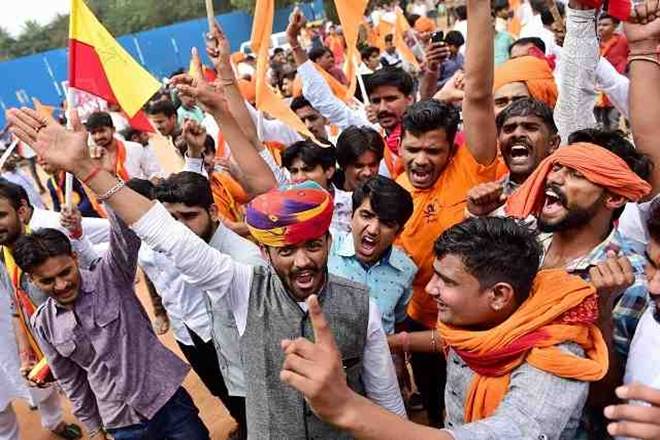Barely days ahead of the scheduled release of Sanjay Leela Bhansali’s ‘Padmaavat’ on January 25, protests and agitations against the controversy-hit film have escalated. Members of the fringe group – Karni Sena, which has been at the forefront of violent agitations against the film — have gone on a rampage in several states across the country demanding a countrywide ban on the release of the film. This, despite the apex court ruling otherwise.
On January 18, the Supreme Court ordered lifting of the ban on the release and screening of the film. The state governments of Gujarat and Rajasthan had banned the release of the film in their respective states. The court had also restrained other state governments from issuing similar orders. While the SC order ought to have paved way for a peaceful end to the threats and protests that have characterised a piece of artistic expression, the reality has been anything but that.
A look at the events that have transpired since the SC order allowing the release of ‘Padmaavat’ explains this assertion:
– Protests against the film turned violent in Gujarat where protesters set ablaze buses and resorted to violence and arson. Buses were burnt in Gandhinagar, Mehsana and Ahmedabad districts of the state by protesters demanding a ban over the film. Transport services have been hit with the Gujarat State Road Transport Corporation suspending services in the northern part of the state following violent protests. Protesters also vandalised Rajhans Cinemas in Ahmedabad late on Saturday night.
– Members of the Rajput community staged protests against Padmaavat in Haryana, with some groups issuing open threats of burning down theatres if multiplexes went ahead and screened the film. Members of the Karni Sena distributed a memorandum in all Gurugram theatres asking them not to screen Padmaavat. When asked what would they do when the film is screened on January 25, the group said, “wait and watch what happens on 25th”.
– Members of some of the protesting outfits, including the Karni Sena and other Rajput organisations, damaged Noida’s busy DND flyover counters against the release of the film in Uttar Pradesh. Though the counters were non-operational – the DND flyover is currently free for use – the protesters ran rampage on the road. The Karni Sena members said they will be meeting CM Yogi Adityanath and seek his intervention to stop the screening of the film. A total of 14 people were detained for the violence.
– Haryana Chief Minister Manohar Lal Khattar has written to the theatre owners in the state advising them against the release of the film. He has, however, clarified, that theatres that choose to go ahead with the screening of the film will be provided police security.
– The state governments of Rajasthan and Madhya Pradesh governments have approached the top court seeking a relook at its decision to allow the film’s release. Meanwhile, the film’s distributors in Rajasthan have backed out, signalling uncertainty in the screening of the film in the state.
– Threats have been issued to CBFC chairman Prasoon Joshi that he will not be allowed to enter Rajasthan. He has since been accorded top ‘Z’ category security for his upcoming visit to the Jaipur Literature Festival.
While the final decision on the matter rests with the apex court, state governments have been notable in their inability to control the situation from spiralling out of hand. Mob violence over any issue, leave aside one that the SC has already ruled on – merits a stern hand from the administration, lest it is seen as the tacit support of the state.
Even state governments, including those which have moved the top court against the decision, need to ensure that law and order is upheld even if it holds certain views on the release of the film. Caste politics and vote banks have been seen as the biggest reason behind the lawlessness that the fringe has been allowed to perpetrate upon the common people. The state governments would be well-advised to instil the fear of law among the fringe. In not doing so, they risk taking the Supreme Court as well as the electorate for granted.

